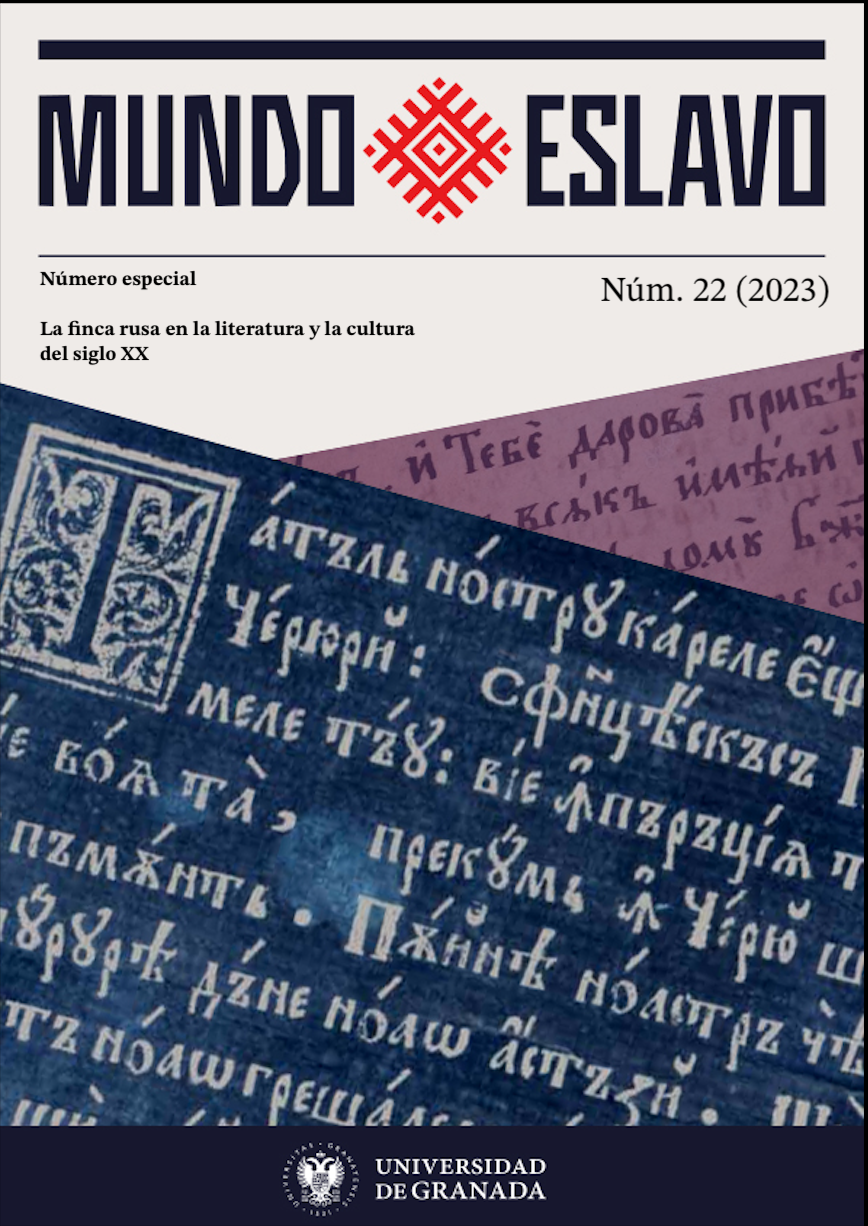Motronivka Farm of the Bilozersky-Kulishes` Family in the cultural space of Ukraine in the 19 -21st centuries
DOI:
https://doi.org/10.30827/meslav.22.25377Abstract
The article examines the Kulish “farm philosophy” as a complex synthesis of Rousseau`s ideas, romantic aesthetics, populist ideology and Christian views. “Farm philosophy” is ambiguously related to the life of the writer on his own farm in the 1850s. The reality of everyday life and relations with the serfs are, on the one hand, in contradiction with the provisions of his “farm philosophy”, on the other hand, they are the practical experience on which the writer developed these ideas. The ideas of the Kulish “farm philosophy” are not only a religious and philosophical substantiation of the positive meaning of the farm in the history of the Ukrainian people, its language and literature, but also a kind of historiosophical program for the development of the Ukrainian nation. This philosophy at the last stage of the poet’s work became the basis for his poetry. Thus, in the collection “Farm Poetry”(1882) the themes of “farm philosophy” are linked with the poet’s own biography and become the basis of his lyrical works. And after Kulish’s death, another collection of his unfinished poems “Farmers’ unburnt”(1902) was published, which testifies to the importance of farm philosophy themes for the author’s creative evolution. The tragic history of the Motronivka farm, which the writer himself renamed Gannina Pustyn in honor of his wife, has become an indicative page in the history of Ukraine in the 20-th and 21st centuries, with successive periods of prosperity and decline in its cultural life.
Downloads
Downloads
Published
How to Cite
Issue
Section
License
Copyright (c) 2023 Mundo Eslavo

This work is licensed under a Creative Commons Attribution-NonCommercial-ShareAlike 4.0 International License.

CC BY-SA: This license allows reusers to distribute, remix, adapt, and build upon the material in any medium or format, so long as attribution is given to the creator. The license allows for commercial use. If you remix, adapt, or build upon the material, you must license the modified material under identical terms.
CC BY-SA includes the following elements:
BY ![]() – Credit must be given to the creator
– Credit must be given to the creator
SA ![]() – Adaptations must be shared under the same terms
– Adaptations must be shared under the same terms
Authors who publish with this journal agree to the following terms:
1. Authors retain copyright and grant the journal right of first publication with the work simultaneously licensed under a Creative Commons Attribution License that allows others to share the work with an acknowledgement of the work's authorship and initial publication in this journal.
2. Authors are able to enter into separate, additional contractual arrangements for the non-exclusive distribution of the journal's published version of the work (e.g., post it to an institutional repository or publish it in a book), with an acknowledgement of its initial publication in this journal.
3. Authors are permitted and encouraged to post their work online (e.g., in institutional repositories or on their website) prior to and during the submission process, as it can lead to productive exchanges, as well as earlier and greater citation of published work (See The Effect of Open Access).













